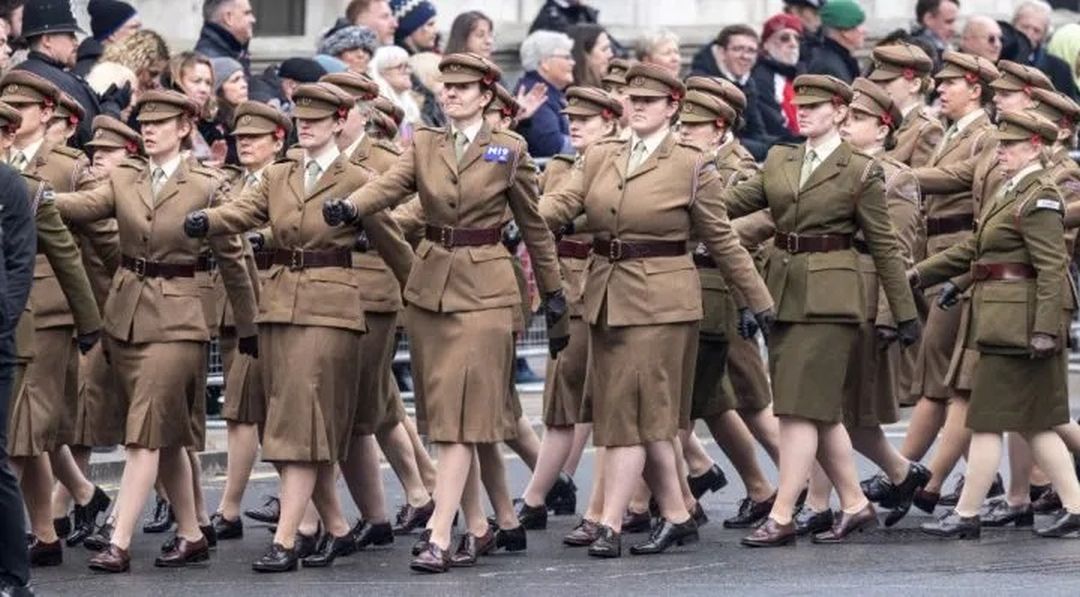When the Tories start talking about national service they really are grasping at straws. The concept might possibly appeal to some older voters nostalgic for an earlier time, but Rishi Sunak’s ideas are quite different from the military conscription of young men that lasted from 1949 to 1963.
Let’s put aside the 30,000 or so ‘selective’ military placements for the ‘brightest and the best’. Yes, young people can offer much to the nation’s approach to cyber security and the defence of our IT infrastructure against external threats. Fresh minds see solutions that others may not. But if that isn’t happening already, what has the government been doing for the past 14 years? It would be a double tragedy if our sharpest youngsters have been frittering their time away playing computer games when they could have been doing something vital to help defend the nation.
The national service diet proposed for the other 96 per cent of the cohort is somewhat different: ‘community volunteering’ for one weekend a month apparently, except that it will not be voluntary. Perhaps ‘community service’ would be closer to the mark? But only when they have broken the law are older adults compelled to do up to 300 hours of unpaid work. 18-year-olds will be saddled with different rules – don’t expect them to be impressed.
As a teacher, I know how keen many youngsters are to contribute to their local communities. The Duke of Edinburgh’s Award recognises the contribution of thousands of them every year. My students have volunteered in hospices and with homeless charities; they have read to small children in primary schools and assisted with the cubs and brownies. They serve willingly and enthusiastically because they are volunteers doing something they perceive to be valuable.
Conscription is a different matter. Tell an 18-year-old that they must report at 0830h on a Saturday morning for an activity they have not chosen to do, and the response is more likely to reluctant and apathetic. If, indeed, they turn up at all. Good luck to the army of adults who will need to plan around three quarters of a million placements, supervise the conscripts, file reports and chase absences.
Convicted criminals sentenced to community service have the prospect of prison time if they fail to co-operate but, according to James Cleverly, there will be ‘no criminal sanctions’ for youngsters. The scope for civil disobedience on an industrial scale must be obvious even to the Home Secretary.
Maybe the government is happy to present an unworkable idea – plan is too strong a word for it – because they have no expectation of ever being required to implement it. But the bluster has deflected attention from a report by the House of Commons Education Committee that dropped over the weekend. The committee found that:
Research suggests a 52 per cent increase in children’s screen time between 2020 and 2022, and that nearly 25 per cent of children and young people use their smartphones in a way that is consistent with a behavioural addiction.
House of Commons Education Committee
That huge increase just happened to coincide with the period when the government closed schools for the best part of two complete terms and shifted teaching and learning to online platforms. Schools are still grappling with the thorny issue of how to help children use technology without being distracted by it. Evidence from the teachers’ union NASUWT argued that ‘it could take up to 20 minutes for pupils to refocus on what they were learning after engaging in a non-academic activity such as browsing the internet or noticing a notification on their phone.’
Even 1950s style military service might not cut through that. I spoke to one former soldier who was conscripted from May 1960 to May 1962. ‘It put me back two years behind in time and money’, he lamented. He did see the world – well, the British Cameroons where he served as part of a peacekeeping force during a plebiscite for independence. Much of his time was spent in the barracks playing endless rounds of cribbage. I suspect today’s generation might simply be glued to their phones.
This is a real and pressing issue that can have a devastating impact on the development of young people. If the government really cared about the young, they would put rather more emphasis on workable schemes to get children off their phones and into the fresh air, than attempt to pander to the nostalgia of the older generation.
Debbie Hayton is a teacher and journalist.
Her book, Transsexual Apostate – My Journey Back to Reality is published by Forum
* This article was first published by The Spectator on 28 May 2024: Why the Tories’ national service idea is unworkable.
